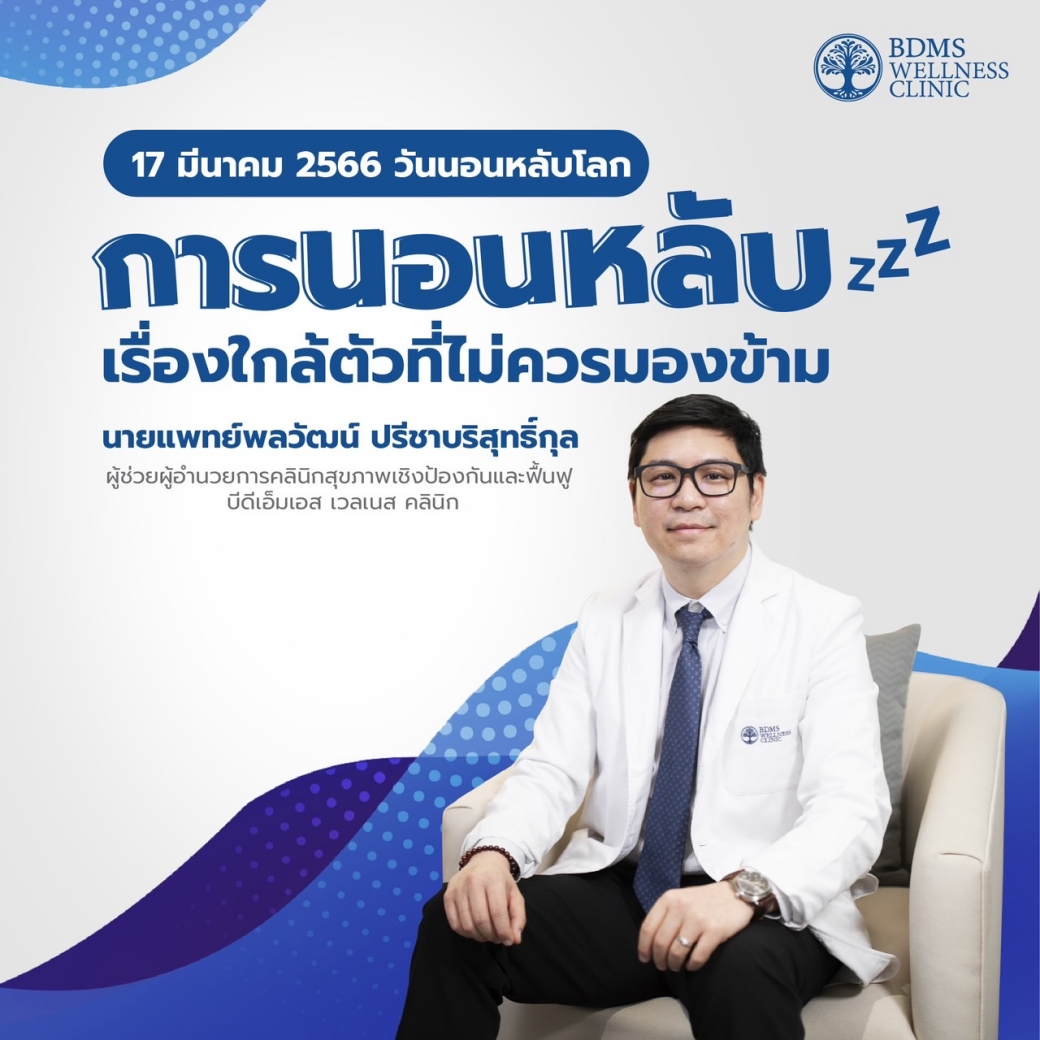Sleep Deprivation Risk Factor for NCDs
Sleep is a basic need for humans. About a third of people suffer from sleep disorders. Whether the cause for the lack of sleep is planned, such as working shifts or traveling, or unplanned, such as external disruptors or health issues, prolonged poor sleep takes a toll on your health as well as quality of life.
Our sleep consists of cycles of non-rapid eye movement (NREM) and rapid eye movement (REM) stages. Each cycle lasts about 90 minutes starting with NREM, made up of 3 stages: transition to sleep, light sleep, and deep sleep. NREM stages last for approximately 60-70 minutes, followed by around 20-30 minutes of REM stage. When people are sleep deprived, including sleep less than six hours, interrupted sleep, or mostly light sleep, their sleep cycles are incomplete. Consequently, they are unable to get to deep sleep and REM stages sufficiently which are crucial for body recovery period. Therefore, prolonged poor sleep is associated with illnesses and deaths from the following diseases:
Obesity
A 2008 study published in the Sleep by Cappuccio et al analyses existing studies on sleep deprivation and obesity. Among over 30,000 children and over 600,000 adults, it is found that children who sleep less than ten hours per night are at 1.89 times higher risk of obesity, and adults sleeping less than six hours have 1.55 times increased risk of obesity. The risk decreases as you sleep more. With every hour of sleep increased, the body mass index (BMI) is reduced by 0.35 kg/m2.
Causes: Several hormones are secreted during our sleep. Lack of sleep will upset the balance of major hormones in appetite regulation, namely leptin (satiety hormone) and ghrelin (hunger hormone). Inadequate sleep is associated with 18% decrease in leptin level and 28% increase in ghrelin level, resulting in intensified hunger and appetite, especially cravings for snacks high in carbohydrates and fat. A 2011 study published in the American Journal of Clinical Nutrition confirms that subjects who have four hours of sleep consume 22% more calories than those with eight-hour sleep.
Diabetes
A 2016 study published in the Sleep Medicine Reviews analyses research on diabetes and sleep, including the duration and quality of sleep. It is determined that sleeping less than five hours increases the risk of diabetes by 1.48 times and poor sleep quality increases the risk by 1.38 times. Shift worker has 1.15 times higher risk of developing diabetes than those who work normal hours.
Causes: Sleep deprivation decreases insulin sensitivity by 16-24%, as well as affects insulin secretion and pancreatic beta-cell response, heightens cortisol release, upsets growth hormone, and increases inflammation. Sleep deprivation also stimulates hunger and appetite, leading to weight gain, which is a major risk factor for diabetes.
Cardiovascular diseases
According to a survey of 71,455 participants by the US National Institutes of Health (NIH), 32.4% of people who sleep less than six hours per night suffer from hypertension (high blood pressure). A 2016 study published in the Sleep Medicine Clinics reports that subjects with less than five hours of sleep have 1.32 times higher risk of hypertension and 1.39 times higher risk of coronary heart disease, while those who slept less than 6 hours have 1.71 times elevated risk of stroke.
Causes: Long-term sleep deprivation stimulates norepinephrine release, which leads to the narrowing of blood vessels, increased blood pressure, accelerated heart rate, and abnormal blood pressure regulatory mechanisms. Sleep deprivation also causes premature deterioration of blood vessels structure, loss of bloo
Cancer
A 2020 study from the International Journal of Cancer reviews research on different types of cancer and sleep and concludes that sleep deprivation affects each type of cancer differently. Those who sleep less than seven hours per night have 2.22 times risk of gastric cancer and 2.18 times risk of pancreatic cancer.
Causes: With less than four hours of sleep, NK cell (Natural Killer cell) functions are decreased by as much as 72%. These cells play an important role in battling cancer. Moreover, sleeping at night is crucial for melatonin production in the pineal gland, which helps inhibit the growth of tumours that may develop into cancer cells.
It is obvious that sleep is fundamental to health maintenance. Good sleep requires both sufficient duration, sleep quality, and sleep schedule that allows the circadian rhythm to correspond with the functions of the various bodily systems.
Consult medical professionals if you suffer from sleep disorders to identify the cause and receive treatment before sleep deficiency affects your daily lives and physical health.
References
- Bayon V, Leger D, Gomez-Merino D, Vecchierini M-F, Chennaoui M. Sleep debt and obesity. Annals of Medicine. 2014;46(5):264–72.
- Horne J. REM sleep vs exploratory wakefulness: Alternatives within adult ‘sleep debt’? Sleep Medicine Reviews. 2020;50:101252.
- Cappuccio FP, Taggart FM, Kandala N-B, Currie A, Peile E, Stranges S, et al. Meta-analysis of short sleep duration and obesity in children and adults. Sleep. 2008;31(5):619–26
- St-Onge M-P, Roberts AL, Chen J, Kelleman M, O’Keeffe M, RoyChoudhury A, et al. Short sleep duration increases energy intakes but does not change energy expenditure in normal-weight individuals. The American Journal of Clinical Nutrition. 2011;94(2):410–6.
- Anothaisintawee T, Reutrakul S, Van Cauter E, Thakkinstian A. Sleep disturbances compared to traditional risk factors for diabetes development: Systematic review and meta-analysis. Sleep Medicine Reviews. 2016;30:11–24.
- Covassin N, Singh P. Sleep duration and cardiovascular disease risk. Sleep Medicine Clinics. 2016;11(1):81–9.
- Titova OE, Michaëlsson K, Vithayathil M, Mason AM, Kar S, Burgess S, et al. Sleep duration and risk of overall and 22 site‐specific cancers: A Mendelian randomization study. International Journal of Cancer. 2020;148(4):914–20.




